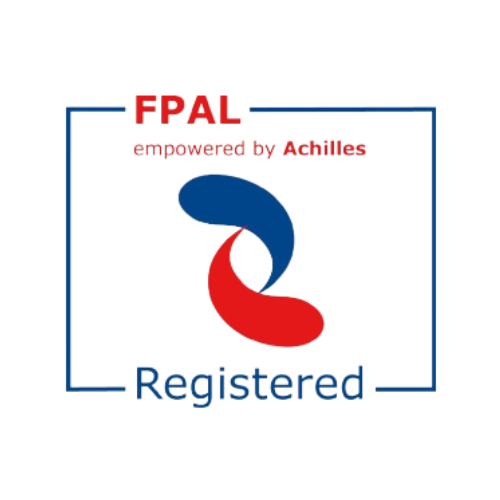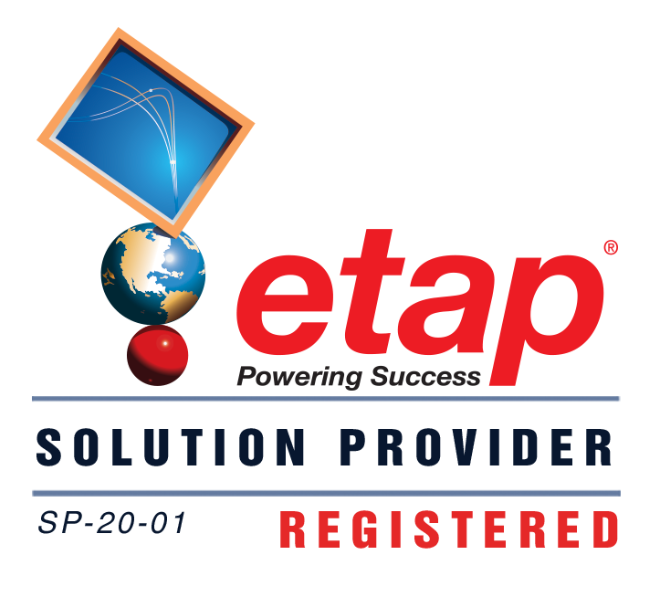Ethics Policy
- Purpose
EPS’s Ethics Policy sets out the general framework for the professional behaviour expected from EPS’s employees.
The purpose of this document is to set down guidelines as to how the general framework is to be applied.
The document will describe the general ethical principles that all employees need to apply in their professional practices and in their behaviour towards all stakeholders – both internal and external. - Responsibilities
All employees are expected to make EPS’s Ethical Policy an integral part of the way they undertake their jobs. To assist with this, the management system and this document clearly defines responsibilities at all levels.
The Chief Executive Officer has primary responsibility for implementing this policy and for reporting any issues to our Board of Directors. All employees are required to avoid any activities which might lead to or suggest a conflict of interest with the business of EPS.
Every employee and individual undertaking work for EPS has a personal responsibility for the implementation of the policy.
It is the responsibility of the Senior Management Team to ensure that ethical standards are maintained. The Senior Management Team shall monitor this Policy and periodically review its suitability, adequacy and effectiveness and implement improvements as appropriate. This review will take place at the monthly business performance review meetings. - Definitions
Bribery is the offering, promising, giving, accepting or soliciting of an advantage as an inducement for an action which is illegal or a breach of trust.
Fraud is any deliberate and concealed action or omission, committed with the intention of deceiving or bypassing existing laws or EPS’s rules or policies, in order to obtain unwarranted material or moral advantage for the perpetrator of the fraud or for a third party.
Corruption is an illegal agreement between two or more people and is a form of fraud. There are two general categories of corruption:
– Active corruption consists in offering some in offering someone an advantage in order to influence a decision-making process.
– Passive corruption consists in accepting an advantage in return for using one’s influence to affect a decision. Passive corruption can happen without active solicitation but can include practices as serious as extortion.
For EPS the appointed Ethics Officer shall be the Executive Chief Executive Officer. The Ethics Officer is responsible for implementing the Ethics Policy. - Reference Documents
– QA-FO-033 Entertainment Form
– QA-FO-034 Charitable Giving Yearly Nomination Form - Policy
EPS prohibits all forms of bribery whether they take place directly or through third parties.
EPS prohibits its employees from soliciting, arranging or accepting bribes intended for the employee’s benefit or that of the employee’s family, friends, associates or acquaintances.
EPS employees or agents should not make direct or indirect contributions to political parties, organisations or individuals engaged in politics as a way of obtaining advantage in business transactions. Any political contributions must be publicly disclosed.
EPS shall ensure that charitable contributions and sponsorships are not used as a subterfuge for bribery. All charitable contributions and sponsorships shall be disclosed.
EPS recognises that facilitation payments are bribes and that it should work to identify and eliminate them. - Business Developments
6.1 Joint Ventures and Consortia
EPS will conduct due diligence before entering into any joint venture or consortium. Potential joint venture or consortium partners must have an anti-corruption policy consistent with this EPS Policy.
EPS will monitor the anti-corruption policies and performance of joint venture and consortium partners and if it finds or suspects actions which are inconsistent with its own Policy it will take appropriate action to correct deficiencies, apply sanctions or terminate its participation in the joint venture or consortium. Where EPS is unable to ensure that a joint venture or consortium has an anti-corruption policy consistent with its own, it should have a plan to exit from the arrangement if bribery occurs or is reasonably thought to have occurred.
6.2 Agents and Other Intermediaries
EPS will not channel improper payments through agents or other intermediaries.
EPS will conduct due diligence before appointing agents or other intermediaries.
All agreements with agents or other intermediaries will require prior approval of senior management.
Compensation paid to agents and other intermediaries must be appropriate and justifiable remuneration for legitimate services rendered.
Agents and other intermediaries must contractually agree to comply with this Policy and be provided with the appropriate advice and documentation explaining the obligation.
EPS will contractually require its agents and other intermediaries to keep proper books and records available for inspection by EPS, its auditors or investigating authorities.
The relationship must be clearly documented in writing.
EPS will monitor the conduct of its agents and intermediaries and should have a right of termination in the event that they pay bribes or act in a manner inconsistent with this Policy.
6.3 Contractors and Suppliers
EPS will conduct its procurement practices in a fair and transparent manner.
EPS will avoid dealing with contractors and suppliers known or reasonably suspected to be paying bribes. It should undertake due diligence, as appropriate, in evaluating prospective contractors and suppliers to ensure that they have effective anti-corruption policies.
This Policy will be made known to contractors and suppliers.
EPS will monitor significant contractors and suppliers as part of its regular review of relationships with them and have a right of termination in the event that they pay bribes or act in a manner inconsistent with this Policy.
EPS considers all forms of discrimination to be unacceptable in the workplace. EPS is committed to providing equal opportunities throughout all areas of employment, including recruitment, remuneration, training and promotion of staff.
EPS is committed to ensuring that no job applicant or employee receives less favourable treatment or is unlawfully discriminated against on grounds of disability, gender, age, sex, sexual orientation, gender reassignment, race, spent convictions 2001, colour, religion, nationality or ethnic origin in accordance with Sex Discrimination Act 1975, the Race Relations Act 1976, Disability Discrimination Act 2005, Civil Partnership Act 2004.
EPS will not ignore, or treat lightly, grievances or complaints from employees on the assumption that the individual is oversensitive about discrimination, discrimination can occur by action, omission, orally or in writing by gesture of innuendo. - Fraud
For EPS, fraud, in all its forms, is unacceptable. Any fraudulent act is punishable by the penalties laid down in international or local law and by the Group’s internal rules.
Fraud is considered to be any deliberate and concealed action or omission, committed with the intention of deceiving or bypassing existing laws or EPS’s rules, in order to obtain unwarranted material or moral advantage for the perpetrator of the fraud or for a third party.
Fraud takes multiple forms: theft of money, goods or data, deliberate falsification, concealment or destruction of documents, false entries or declarations, the manipulation of accounts, counterfeiting, money-laundering, swindling, corruption, etc.
Any worker’s employment or medical records (including test results) relating to this Procedure will remain confidential except in regard to section 8.
Where EPS has agreed to assist an employee in overcoming drug or alcohol-related problems, the employee will consent to their doctor or other medical consultant providing information concerning treatment to EPS, if so requested. - Corruption
EPS forbids corruption in all its forms, whatever the time, the place or the circumstances.
Corruption is an illegal agreement between two or more people. It is a form of fraud. Corruption takes concrete form through actions of different kinds such as gratuities, commissions, gifts or payoffs, private use of public goods, misappropriation, unwarranted payment for a public service, etc.
Acts of corruption are sometimes facilitated through the use of intermediaries such as business consultants in the attempt to mask or conceal the acts from prosecution. To prevent such arrangements, EPS has established an internal framework procedure for the engagement of business consultants that is compulsory in its application. - Extortion
Extortion consists in making the award of a contract or license conditional on the provision of an unwarranted consideration in return, through the exercise of pressure that can extend from occasional or daily demands for money, to exaggerated administrative red tape, or even physical threats to individuals and their families. - Entertainment
Entertainment in the normal course of business shall be the responsibility of the Board of Directors.
The General Manager or Director shall ensure that all entertainment is conducted ethically and professionally at all times.
Upon approval, the Ethics Officer, together with the responsible Business Manager/Director, shall manage the process ensuring that associated entertainment is monitored and records maintained, including completion of Entertainment Form QA-FO-033 and submission to EPS Ethics Officer. - Charitable Donations and Associations with Registered Charities
The Chief Executive Officer together with the Business Development Department will put forward nominations for three charities, nominations to be from employee representatives. The nominations shall be recorded on Charitable Giving Yearly Form QA-FO-034, the completed form shall be forwarded to the Ethics Officer. - Recording of Applicable Business Dealings
The Ethics Officer shall be responsible for the creation and updating of a formal register, recording all gifts, hospitality, travel, cultural gifts or sports events.
The Ethics Officer shall report regularly to the Senior Management Team and shall compile and issue to the CEO annually a report on ethics. - Confidentiality
As a rule, any information that has not purposefully been made public by EPS or its entities shall be considered confidential and is not to be divulged to any third party without express prior authorisation by a Company Director.
During execution of their tasks, employees will have access to information which relates to clients and stakeholders which will be sensitive and or confidential. Any employee who passes any information to a third party without prior authorisation will be subject to the EPS disciplinary process.
Employees are required to maintain maximum discretion regarding information, of any kind, originating from or in relation to either EPS or any client organisation / personnel. - Conflict of Interest
A conflict of interest is a situation in which the judgement of a person who is acting in a professional capacity may be excessively influenced by a secondary interest, distinct from that of EPS, e.g. when an employee might take a decision, not on the grounds of their company’s interests, but on their own or a relative or friend. Employees shall check with their line manager if any suspected conflict of interest occurs. This is particularly relevant if you or someone close to you has interests in a company or body that is a client, competitor or supplier of EPS. - Resources & Development
EPS’s commitment to this Policy should be reflected in all Resources & Development practices including recruitment, promotion, training, performance evaluation, remuneration and recognition.
No employee or individual undertaking work for EPS will suffer demotion, penalty, or other adverse consequences for refusing to pay bribes, even if such refusal may result in EPS losing business.
Compliance with this Policy is mandatory for all employees and individual undertaking work for EPS. Failure to comply with its provisions will be dealt with as misconduct under EPS’s disciplinary procedures. - Employment
EPS will not unlawfully discriminate against an individual employee based on disability, gender, sexual orientation, sex, marital status, race, colour, religious conviction, age, nationality or ethnic origin. - Selection
All job applicants will be treated equally. Applicants will be considered on their merits, skills and values for employment, career development and promotion without discrimination. - Raising Concerns and Seeking Guidance
Any employee with concerns regarding the implementation of this Policy or possible violations of its provisions is encouraged to report those concerns to a member of the Senior Management Team of EPS or the Ethics Officer. Any such report will be treated in confidence and without risk of reprisal. - Recruitment and Promotion
EPS will ensure that information about vacant posts will be circulated as widely as possible, so that it may reach as wide a group as possible regardless of race, religion, sex, colour, age, marital status, nationality, ethnic origin, disability or sexual orientation.
No recruitment literature or advertisements will imply a preference for any one group of applicants unless there is a general occupational qualification, which limits the post to a group, in which case this must be clearly stated.
Where a particular qualification is required, EPS will (as far as reasonably practical) state that a fully comparable qualification obtained is as acceptable as a UK qualification.
EPS will recognise the Code of Practice of the Commission for Racial Equality and the Equal Opportunities Commission Code of Practice.
EPS will take all reasonable steps to recruit, employ and promote employees based on ability, skill and qualification, without regard to any of the grounds referred to above.
EPS will avoid making any requirements when recruiting employees, which would exclude a higher proportion of a particular sex or racial group. - Training, Facilities, and Benefits
EPS will make no distinction based on grounds of race, sex, colour, age, religion, marital status, nationality, ethnic origin, disability or sexual orientation between the training, facilities, promotion, performance, appraisal, pay, terms and conditions, transfer, disciplinary procedures and dismissals and policies against harassment and benefits it provides its employees.
The Annual Appraisal process has been designed to support this, since it focuses on the skills, knowledge, values and attributes required and demonstrated in employees’ roles. It therefore provides an objective framework to which development needs can be addressed. - Monitoring
EPS will ensure that all aspects of the policy are kept under review to ensure the effectiveness of its Bullying and Harassment Procedure. From time to time, EPS will review its selection criteria for recruitment, training, and promotion to ensure that they do not constitute or could lead to unlawful discrimination. - Remedies
Any employee who believes that he / she have been adversely affected by discrimination should raise the issue using the Disciplinary and Grievance Procedure (HP-PR-002).
Employees shall not be victimised for doing so and penalties will be imposed on those who do victimise those complaining of discrimination.
Appendix 1 – Guidance and Authorisation with Regard to Employee and/ or Company Provided
| Description | Guidelines and Limitations | Responsible Actions/ Approval | |
| Gifts and Entertaining | Gifts and or Entertaining may be provided to third parties so long as it is proportionate and reasonable. Care should be taken to ensure that such gifts or entertaining is not seen to be concentrated on one person or organisation. | The date, nature, names of persons and their organisations who receive or provide ANY gifts or entertaining, however small, must be registered with the Ethics Officer (or their delegate) immediately after the provision of the gift / entertainment by person who organised the event / gift. | Non-Compliance Will Result in Disciplinary Action |
| Gifts | The provision of gifts must comply with prevailing law, legislation, policies. The frequent giving of gifts may be justified in certain circumstances; but in every case a business justification is required along with a business purpose. Gifts shall be considered appropriate where they are intended to promote the name or activities of EPS, they foster the development of business opportunities, they contribute to the quality of the professional relationship and are reasonable and given / received in good faith | Where there is an intention to provide gifts to clients / third parties the General Manager shall issue a proposal and budget to the Chief Executive Officer. The process may only proceed upon approval from the Chief Executive Officer. Upon approval, the Ethics Officer, together with the General Manager shall manage the process for obtaining and giving of the gifts and ensuring that records are maintained of the names of the recipient, date of receipt and note of the gift. All employees shall inform the Ethics Officer when they receive a gift of any nature as part of their work. | |
| Permitted Gifts | – Giving of gifts in connection with special events (e.g. Christmas) – Promotional gifts for publicising brand | The providing of gifts to a third party must have prior approval from the responsible Director and MUST be recorded with the Ethics Officer. | |
| Prohibited items / gifts; | Gifts given with the aim of obtaining contracts prior to the decision or following a favourable contract award. – Conditional or solicited gifts – In the form of services or other benefits in kind ( e.g. offer of employment). – Not in compliance with country / regional laws or that are of an outrageous or obscene nature or contrary to human dignity. – Donations in cash, cash equivalents, loans or securities. – – Company services offered free of charge, or at a value below the market price usually charged by EPS (except in the case of philanthropic or corporate patronage programmes). | The offer of any prohibited item must be graciously declined. You must register the offer with the Ethics Officer. | |
| Hospitality | Hospitality can only be offered in restaurants where employees are able to reciprocate with hospitality of an equivalent value, in these cases it is not permitted to include within the offer of hospitality Husband/ Wife/ Partners. Any travel invitation given in a professional context must be authorised by the employee’s manager in advance. Invitations to cultural or sports events must not involve reckless expenses and be infrequent in nature | The hospitality offer must to approved by the General Manager/ Chief Executive Officer and be registered with the Ethics Officer. The offer can only be authorised when meeting the following conditions: – Its purpose is purely professional. – The trip is not extended to family, relatives, and friends. – The rules of accommodation & travel are in accordance with EPS’s standard travel expenses limits and procedure (expenses must be reasonable, justified and in line with the professional nature of the trip). Invitations must be authorised by the employees line manager in advance (except those arranged by the Group, or related to corporate philanthropy or sponsorships ). | |
| “Guvvie Jobs” | All requests for work by personnel from third parties must be confirmed in writing and approved in advance by the responsible Business Line / Unit Director (or their delegate in case of their General Manager/ Chief Executive Officer absence). UNDER NO CIRCUMSTANCES MUST “GUVVIE JOBS” BE ALLOWED TO BE UNDERTAKEN ON CLIENT PREMISES | It is the responsibility of the General Manager of the value of the work performed with the Ethics Officer (or their delegate). The Ethics Officer will monitor the frequency and nature of the services provided to particular organisations or persons and provide guidance when it could be deemed to be verging on the unreasonable | |
| Entertainment | Invitations must retain their exceptional character and not lead to ill-considered expenses, particularly in terms of travel. In this regard, EPS Policy is not to cover travel or hotel expenses. It is preferable to organise events for several persons rather than inviting one person individually, this latter practice could reflect badly on the reputation of EPS as well possibly on the individual concerned. It is important to keep expenses at a reasonable level and to remain aware of the possibility of conflict of interests. It is important that colleagues do not give the impression of trying to exercise influence or commit bribery, or of having conflicts of interest. When colleagues invite others to a restaurant or a show, they are to avoid ostentatious establishments and, as a general rule, any place or activity that does not pass the ‘common sense’ test. | Frequent invitations may be justified in certain circumstances; in every case a business justification is required along with a business purpose and the amount of expense. This condition precludes having the Group company cover expenses for a spouse, friend or relative of the customer or prospect, unless circumstances and local custom dictate otherwise | |
| Entertainment | EPS may consider that it is viable to secure, for a season, a suitable venue to entertain customers, e.g. executive box at a football ground/horse racing course etc. The responsible Chief Executive Officer shall request the approval form the Chief Executive Officer after issuing a proposal and budget. | Upon approval, the Ethics Officer, together with the responsible Business Manager/Director General shall manage the process ensuring that associated entertainment is monitored and records maintained, including informing the Commercial Risk & Legal Manager. | |
| Charitable Donations and Association with Registered Charities | Each Business line / Unit will be provided with a list of agreed relevant charities. Monetary donations to the selected charities may be made by EPS either as part of internal processes and arrangements or as a result of one off events. | The Ethics Officer shall ensure that complete and accurate records are maintained for internal and external auditing purposes. The HR Department will ensure payments to the relevant charities are distributed at least twice a year. |
Appendix 2 – Guidance and Authorisation with Regard to Employee Receipt of Gifts and Benefits
| Description | Guidelines and Limitations | Responsible actions / approval | |
| Gifts and Entertaining | Gifts and or Entertaining may be received from third parties so long as it is proportionate and reasonable. | The date, nature, names of persons and their organisations who receive or provide ANY gifts or entertaining, however small, must be registered with the Ethics Officer (or their delegate) immediately after the provision of the gift / entertainment by person who organised the event / gift. | Non-Compliance Will Result in Disciplinary Action |
| Permitted Gifts | Receiving of gifts in connection with special events (e.g. Christmas) where they are of limited value and / or work related such as diaries, calendars, pens, desk organisers, single bottle of wine | No action or approval required | |
| Larger value items such as electronic devices, bottles of spirits, hampers etc. | These gifts must be formally recorded with the Ethics Officer. | ||
| Prohibited Gifts | Company services offered free of charge, or at a value below the market price usually charged by EPS (except in the case of philanthropic or corporate patronage programmes). Very expensive gifts which would bring the recipient and EPS into disrepute. | Not to be accepted. The offer shall be referred to the Ethics Officer. | |
| Hospitality | Hospitality can only be accepted in restaurants where employees are able to reciprocate with hospitality of an equivalent value. In these cases it is not permitted to accept the offer of hospitality for your Husband/ Wife/ Partners | All offers of hospitality must be registered with the Ethics Officer. | |
| Invitations to cultural or sports events may be accepted provided they do not involve reckless expenses and be infrequent in nature | All offers of hospitality must be registered with the Ethics Officer. | ||
| Entertainment | Invitations must be of an exceptional character and not must not be of a disproportionate nature to the level of relationship with the third party. Under no circumstances should an offer of entertainment be accepted if that offer could place the recipient and or EPS into disrepute. | The offer of entertainment must to reported to and be given approval by the responsible Business Line Director prior to acceptance. The full details must be registered with the Ethics Officer. |









